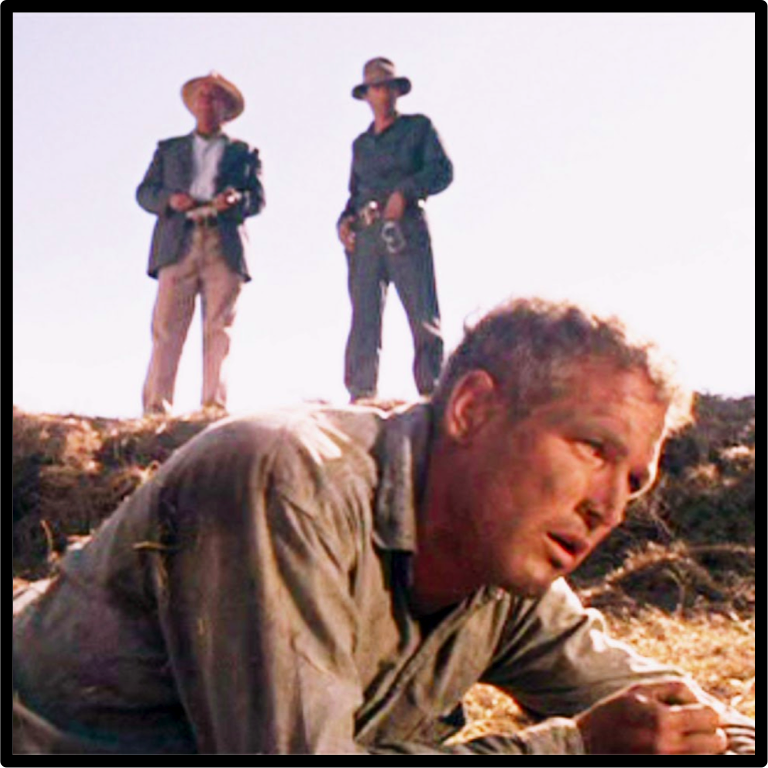 There is a classic scene in the movie Cool Hand Luke where Paul Newman is beaten down by a cruel warden, who then utters the famous line, “What we’ve got here is… failure to communicate.” Ever since that moment first appeared on the silver screen, it has become imbedded in our vernacular.
There is a classic scene in the movie Cool Hand Luke where Paul Newman is beaten down by a cruel warden, who then utters the famous line, “What we’ve got here is… failure to communicate.” Ever since that moment first appeared on the silver screen, it has become imbedded in our vernacular.
I just wish a failure to communicate was the problem we often rely on claim it to be.
You see, I can’t tell you how often I hear serious weight being thrown behind things like communication breakdowns, communication gaps, miscommunication, and so on. I even use the “c-word” when I want to oversimplify the problem. But communication is not the issue. Information flow is. Let me explain.
Communication is about you speaking and me listening. And vice versa. It requires that we both participate at the same time. It is a very active kind of interaction. As soon as one of us is not available (or no longer interested), communication starts to break down. So what do we do? We push people to stay actively engaged with the communication. We get louder. We get creative. We even get repetitive… just in case you weren’t listening the first few times.
But in today’s extremely insane fast-paced world, where people literally check email before they get out of bed and before they go to sleep, communicating more is not actually helping. It’s making things worse. So I have to ask – is communication really the problem?
I don’t think it is.
I believe that the real problem is a lack of information flow. What I mean by information flow is that the knowledge that we collect should be designed to move. Up, down, and across. With all of it available when I have to use it. Not only when someone is actively willing or available to give it to me, but passively – waiting for me to both access it and to add to it.
What I mean by information flow is that the knowledge that we collect should be designed to move. Up, down, and across. With all of it available when I have to use it. Not only when someone is actively willing or available to give it to me, but passively – waiting for me to both access it and to add to it.
Great information flow means that the information does not wait for someone else to initiate the flow of information to me. I shouldn’t have to worry if I got that email, joined that teleconference, or was invited to the meeting (that kind of stuff only makes me join the email chains/telecons/meetings out of fear that SOME HOW I will be missing critical information – what a waste of time). Great information flow is never about waiting for the information to be sent to me period. I can – and should – always be able to go to it on-demand.
 Imagine if the data we needed most was available to us like Wikipedia, Yammer, and SharePoint combined. The technology to do that exists today. What would that do to work flows and processes? How much copying from one data source to paste it in another data source (sales reports and forecasts, anyone?) would be eliminated? The experts in information flow that I talk to tell me it would reduce as much as 75% of administrative time by simply eliminating the hunt/copy/paste activity we all do waaaaaaay too much of. Can you imagine that? I know I can. And I get giddy just thinking about it.
Imagine if the data we needed most was available to us like Wikipedia, Yammer, and SharePoint combined. The technology to do that exists today. What would that do to work flows and processes? How much copying from one data source to paste it in another data source (sales reports and forecasts, anyone?) would be eliminated? The experts in information flow that I talk to tell me it would reduce as much as 75% of administrative time by simply eliminating the hunt/copy/paste activity we all do waaaaaaay too much of. Can you imagine that? I know I can. And I get giddy just thinking about it.
And that, my friend, is a future I would encourage us all to push forward with. Look for ways to start small. Start by separating what is genuinely sensitive to other eyes from everything else. Compare your definitions of sensitivity with your team mates. Make the “everything else” stuff accessible on common drives. If you can, stop answering requests for information to be emailed, etc., and tell people to go to where the information is sitting for them – to be accessed any time. Tell people not to take the information out of the shared space, but to simply work with it there then leave it for others. Fight against hoarding information. And above all else, stop communicating this information. You are only making the chaos worse.
I mua. Onward and upward.


Sadly, Tim, there are also company cultural issues that stop this and the associated senior management egos that maintain this. If you made all this stuff accessible then you’d be promoting autonomy ….. and how is a senior sales manager going to maintain control and compliance with people doing things that they feel they need to do without asking permission first????
There’s a great Peter Drucker quote that “most of what we call management consists of making it difficult for people to get their work done.”
You are so right, Mark. One could go so far as to say that unsubstantiated fear creates a majority of the unnecessary effort in sales.
IF you are going to get senior leadership to approve healthy information flow, you MUST get them to agree on the definition of “sensitivity.” My friend, Tom Naramore, says this is the absolute key to calming them down. Once they see that there are rules to guide how information is being used, they can see the logic of choosing a different way. IF they will make that choice.
You can lead a horse to water…
P.S. I LOVED the Drucker quote, mate.
As a subject matter expert it is my job to help others get the info that they need. It’s all in shared locations and my sales reps could get it themselves, but they are sales experts not product technical experts. I don’t want them spending an hour looking for something that will take me five minutes to find, or spend all day pulling stuff from several sources that I could do in an hour.
Absolutely, Jim. Having a resource as dedicated and knowledgable as you is a massive benefit for any sales team. It is actually impressive that your company would dedicate you in this way. That is opening up the flow of information as a true pipeline. I would go so far as to say that selling in the Information Age mandates help in quickly bringing this kind of help to the frontline sales team.
At the same time, what happens when you are unavailable? Is the system that you use equipped to provide information flow or is it designed to be a dumping zone for everything that could potentially be useful?
I have coworker backup, but our storage systems are mainly dumping grounds. Share point has full text indexing which helps a lot.
The dumping grounds approach is the issue that I have a real problem with. When the business decides to “communicate” by dumping everything into one place, it actually makes the problem worse. Folks are now de-motivated to go search for anything because of the time waste it creates. When information is actually intended to be shared, it must be designed for flow. But most companies do not take the time to engineer this kind of capacity.